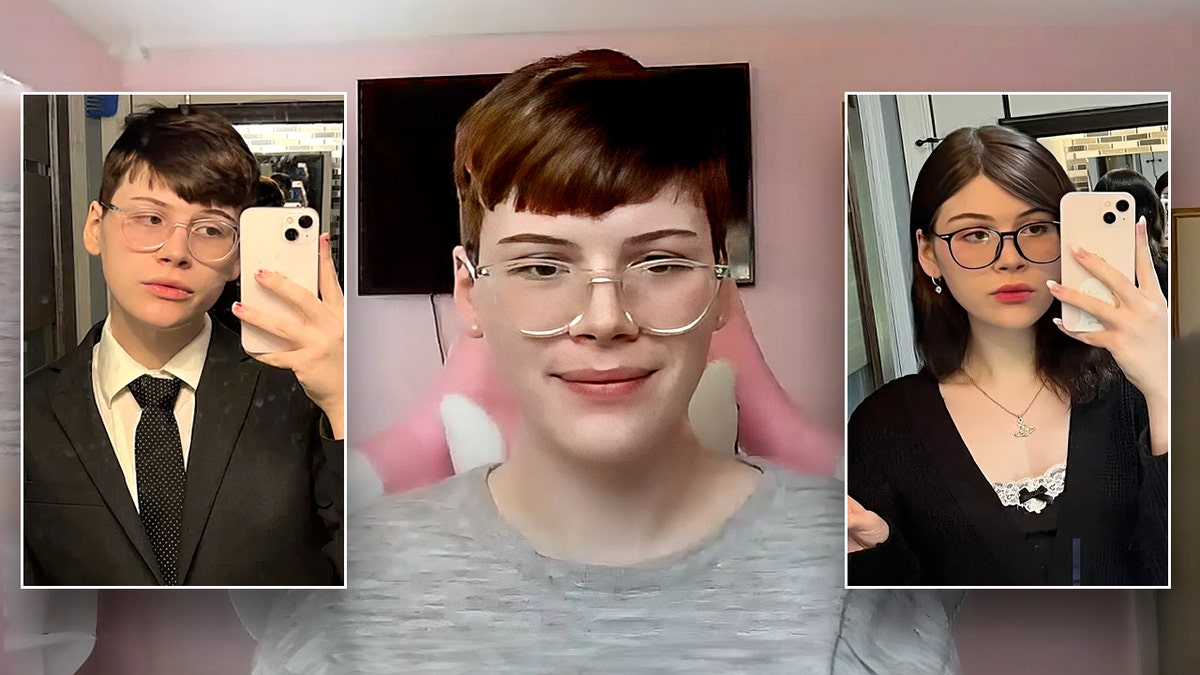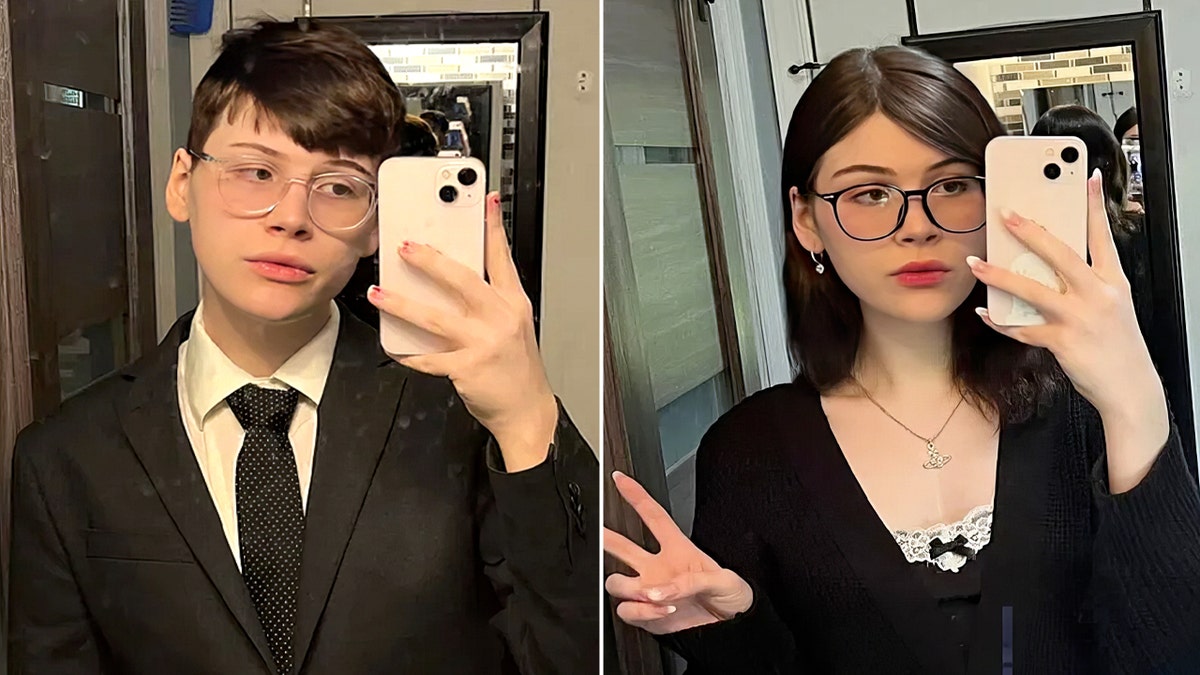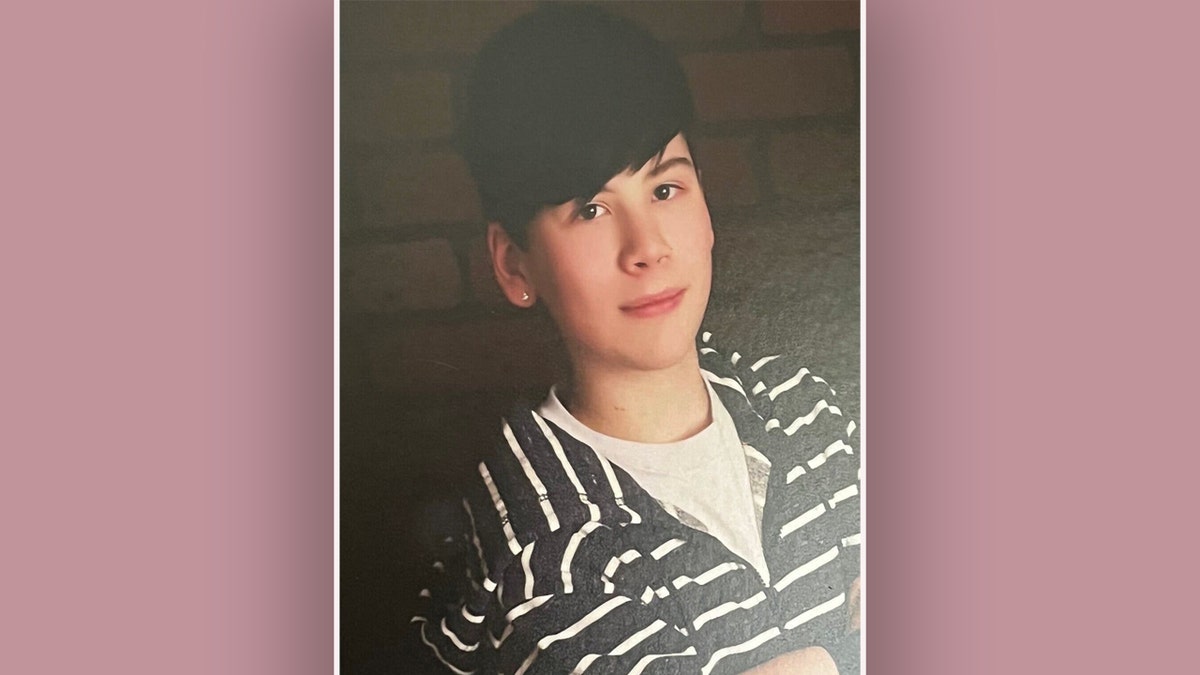A young man, formerly identifying as a trans woman, is sharing his experience with "gender-affirming care" as a warning to others. Undergoing castration and other procedures has left him with lifelong medical challenges. In an exclusive interview with Fox News Digital, Kobe (name changed for privacy) detailed his journey of self-discovery and the regret he now feels.
Kobe described himself as having fit the typical profile of a "trans adolescent," exhibiting traditionally feminine traits from a young age. He believes that without exposure to gender ideology, he likely would have remained a feminine boy. "And there's nothing wrong with that," he reflects. Now, he is striving to reclaim his manhood, a process complicated by the physical changes brought on by hormone therapy and surgery.

Kobe shares his story detransitioning and discovering himself in an interview with Fox News Digital. (Photos used with permission to Fox News Digital)
Kobe views his past medical interventions as a form of self-harm, driven by internalized homophobia during his adolescence. He saw transitioning as a way to escape his homosexuality. However, the reality of his decision hit him after his surgery. He realized he had irrevocably altered his body, with the approval of medical professionals.
Kobe's journey began with online exposure to the concept of gender transition. He felt it offered a solution to his feelings of inadequacy and a way to avoid being an "embarrassment." By age 11, he told his parents he was transgender. At 13, he claims older trans individuals online coached him to use suicidal ideation as leverage to obtain medical interventions. While he admits to experiencing gender dysphoria, he now believes it was amplified by online influences.

Kobe said his transitioning and detransitioning have led to ongoing medical issues. (Photos used with permission to Fox News Digital)
He began puberty blockers around 13, estrogen at 16, and ultimately underwent castration surgery at 19. The procedures, he says, resulted in stunted growth, chronic spinal pain, and the need for lifelong testosterone replacement therapy. He also experienced significant side effects from the estrogen, including brain fog, psychotic episodes, metabolic issues leading to an eating disorder, and loss of sexual function.

Kobe before transitioning. (Used with permission) (Fox News Digital )
Kobe recounts how medical professionals portrayed surgery as a positive step. His approval letter for surgery falsely stated that hormone therapy had been successful and that he was mentally stable. Due to insurance issues, his planned sex reassignment surgery was canceled, leading him to opt for an orchiectomy as a temporary measure. He now recognizes the detrimental impact of this decision, leaving him sterile and dependent on artificial testosterone.

Parents around the country have protested the inclusion of gender ideology in schools. (iStock)

Kobe said he will have to take testosterone artificially after getting castration surgery. (Fox News Digital)
Despite having a supportive family and "passing" as a girl, Kobe remained unhappy. He eventually began questioning the broader transgender ideology, particularly its impact on women's rights. He now feels that the rights of transgender individuals are overshadowing those of biological women.

Lia Thomas looks on from the podium after finishing fifth in the 200 Yard Freestyle during the 2022 NCAA Division I Women's Swimming & Diving Championship at the McAuley Aquatic Center on the campus of the Georgia Institute of Technology on March 18, 2022, in Atlanta, Georgia. (Mike Comer/NCAA Photos via Getty Images)
Looking ahead, Kobe plans to pursue a career in animal care, reconnecting with his pre-transition interests. He hopes his story will serve as a warning to others considering "gender-affirming care" and emphasizes the importance of seeking alternative forms of support for gender dysphoria.
If you are having thoughts of suicide, call or text 988 to reach the National Suicide Prevention Lifeline or go to SpeakingOfSuicide.com/resources for a list of additional resources.
Comments(0)
Top Comments